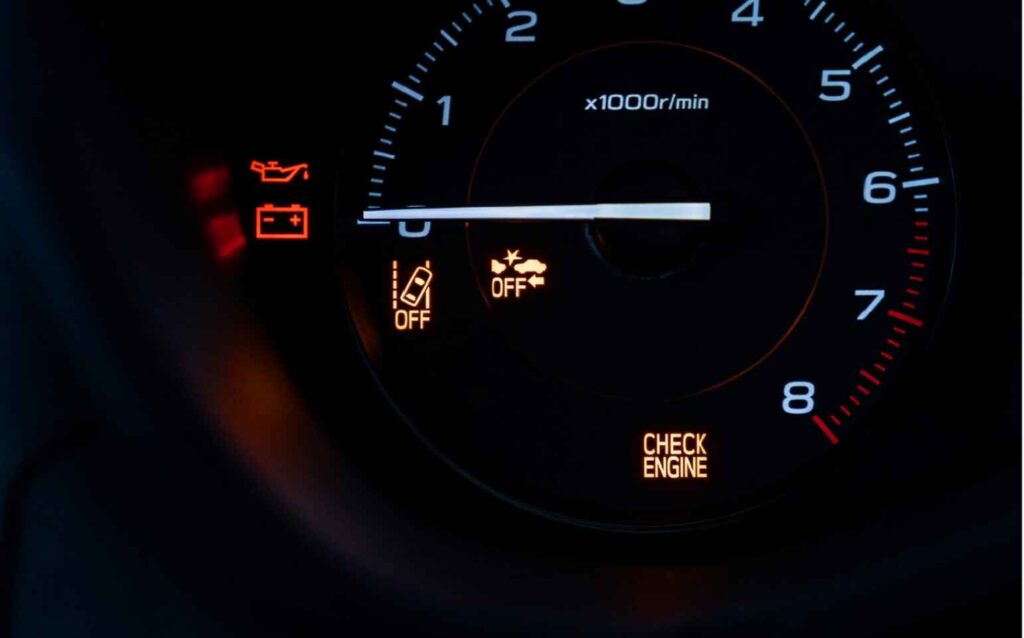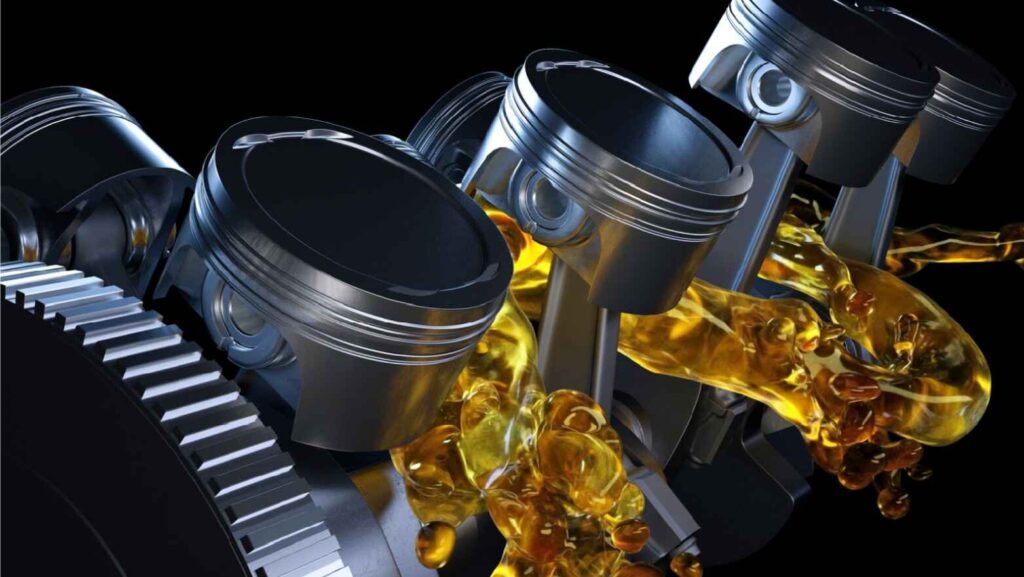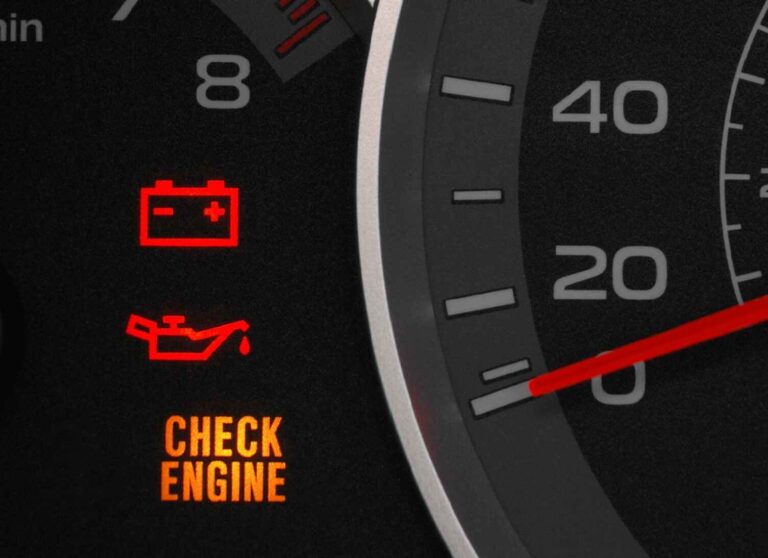Table of Contents
When you drive a car, you might see a little light called the check engine light. There are many reasons for check engine light to come on, and it can be scary when it does. But don’t worry, most of them can be fixed easily.
In this article, we will talk about the common reasons for check engine light to come on and what you can do to fix them. Whether it’s just a loose cap on your gas tank or a more serious issue, knowing what to do can help you keep your car safe and running well. Let’s get started!
Common Reasons for Check Engine Light to Come On

1. Loose or Broken Gas Cap
Sometimes, if the gas cap on your car is loose or broken, it can make the check engine light turn on. This might sound like a small problem, but it’s important. The car’s computer checks the gas cap to make sure it’s tight. If it’s not, gas vapors can escape, which isn’t good for the car. When this happens, the check engine light comes on to warn you.
One of the reasons for check engine light to come on is a loose or damaged gas cap. So, if you see the light, make sure to check the gas cap first. It could be a simple fix!
𝙃𝙤𝙬 𝙩𝙤 𝙁𝙞𝙭 𝙄𝙩: Check if your gas cap is on tight. If it looks broken or old, buy a new one. Fixing this problem is usually very easy and helps turn the light off.
2. Bad Oxygen Sensor
The catalytic converter in your car helps to clean the exhaust gases. It turns harmful gases into safer ones. If it stops working, your car will release more bad gases and may not run well. This can make the check engine light turn on.
𝙃𝙤𝙬 𝙩𝙤 𝙁𝙞𝙭 𝙄𝙩: You might need to replace the catalytic converter, which can be costly. But it’s important to do this to meet emissions rules and keep the engine safe. Regular check-ups and fixing other problems, like a broken oxygen sensor, can help prevent the catalytic converter from failing.
One of the reasons for the check engine light to come on is a bad catalytic converter. So, it’s important to keep an eye on it to avoid big problems later.
3. Problems with the Catalytic Converter
The catalytic converter in your car helps to clean the exhaust gases. It turns harmful gases into safer ones. If it stops working, your car will release more bad gases and may not run well. This can make the check engine light turn on.
𝙃𝙤𝙬 𝙩𝙤 𝙁𝙞𝙭 𝙄𝙩: You might need to replace the catalytic converter, which can be costly. But it’s important to do this to meet emissions rules and keep the engine safe. Regular check-ups and fixing other problems, like a broken oxygen sensor, can help prevent the catalytic converter from failing.
One of the reasons for the check engine light to come on is a bad catalytic converter. So, it’s important to keep an eye on it to avoid big problems later.
4. Faulty Mass Airflow Sensor
The mass airflow sensor checks how much air goes into the engine. If it’s broken, the engine can run badly this is also one of the reasons for check engine light to come on
𝙃𝙤𝙬 𝙩𝙤 𝙁𝙞𝙭 𝙄𝙩: This part may need to be cleaned or replaced. Keeping your air filters clean can help keep this part working. This way, you can avoid the reasons for check engine light to come on.
5. Old Spark Plugs or Ignition Coils

Spark plugs and ignition coils help the engine start by igniting the fuel. When they get old or broken, they can cause the engine to misfire, which is one of the main reasons for the check engine light to come on. This misfiring leads to a rough ride and signals that something may be wrong with the engine.
𝙃𝙤𝙬 𝙩𝙤 𝙁𝙞𝙭 𝙄𝙩: Change spark plugs and ignition coils regularly to keep the engine running smoothly. Manufacturers usually suggest replacing them every 30,000 to 100,000 miles, depending on the type.
6. Bad Engine Control Module (ECM)
The engine control module (ECM) is like the brain of your car. If it doesn’t work right, it can make the check engine light turn on.
𝙃𝙤𝙬 𝙩𝙤 𝙁𝙞𝙭 𝙄𝙩: This is a tricky problem, so it’s best to take your car to a mechanic. They can check the ECM and fix it if needed.
7. Transmission Issues
If there are problems with the transmission, which helps your car change gears, the check engine light may also come on. This is one of the serious reasons for check engine light to come on
𝙃𝙤𝙬 𝙩𝙤 𝙁𝙞𝙭 𝙄𝙩: Take your car to a mechanic to check the transmission. They will help you fix it if something is wrong.
8. Low Engine Oil Pressure
If your engine doesn’t have enough oil, it can cause the check engine light to turn on. Low oil pressure is a serious problem.
𝙃𝙤𝙬 𝙩𝙤 𝙁𝙞𝙭 𝙄𝙩: Check your oil level. If it’s low, add more oil. If the light stays on after adding oil, you should go to a mechanic.
9. Dirty Air Filters
If your car has dirty air filters, it can stop air from getting to the engine properly. This might cause the check engine light to come on.
𝙃𝙤𝙬 𝙩𝙤 𝙁𝙞𝙭 𝙄𝙩: Change your air filters regularly to keep your engine working well. This helps avoid many reasons for check engine light to come on.
10. Emissions Control Issues
The emissions control system helps keep bad gases from going into the air. If there is a problem with this system, it can be one of the common reasons for check engine light to come on.
𝙃𝙤𝙬 𝙩𝙤 𝙁𝙞𝙭 𝙄𝙩: You will need a mechanic to check the emissions system. Fixing it is important for the environment and your car’s health.
11. Vacuum Leaks
If there are vacuum leaks in your engine, it can cause the check engine light to come on. These leaks can make the engine work poorly.
𝙃𝙤𝙬 𝙩𝙤 𝙁𝙞𝙭 𝙄𝙩: Find and fix the leaks. This might need a mechanic’s help, but fixing it will help your car run better.
12. Weak Battery or Charging System

A weak battery can also turn on the check engine light. This usually happens if the battery is old or not charging correctly. This can also be one of the common reasons for check engine light to come on.
𝙃𝙤𝙬 𝙩𝙤 𝙁𝙞𝙭 𝙄𝙩: Check the battery and replace it if it’s old. Make sure the charging system is working well, too.
13. Fuel Injector Problems
Fuel injectors help deliver gas to the engine. If they are clogged or broken, the engine might not run well, and the check engine light can turn on.
𝙃𝙤𝙬 𝙩𝙤 𝙁𝙞𝙭 𝙄𝙩: Cleaning or replacing fuel injectors can solve the problem. Regularly changing your fuel filter can help keep them clean.
14. Timing Belt Issues
The timing belt helps keep parts of the engine moving in sync. If it wears out or breaks, it can cause serious problems and turn on the check engine light.
𝙃𝙤𝙬 𝙩𝙤 𝙁𝙞𝙭 𝙄𝙩: Check your timing belt regularly and replace it according to the car’s manual. This will help avoid big problems later.
15. Exhaust Gas Recirculation (EGR) System Issues
The EGR system helps reduce pollution. If it’s not working right, it can cause the check engine light to come on.
𝙃𝙤𝙬 𝙩𝙤 𝙁𝙞𝙭 𝙄𝙩: A mechanic can check and fix this system. It’s important for the environment and your car’s performance.
Will a Check Engine Light Come On for an Oil Change?

Many people wonder, “Will a check engine light come on for an oil change?” The answer is no, the light typically does not turn on just because it is time for an oil change. However, if the oil is very low or dirty, it can cause the check engine light to come on.
Does Check Engine Light Come On for Oil Change?
The check engine light is not designed to signal that it’s time for an oil change. Instead, it warns you about issues that might affect your engine’s performance.
Why Low Oil Can Trigger the Engine Light
If your oil level is too low, the engine might not get enough lubrication, which can cause serious damage. When the computer detects low oil pressure, it may turn on the check engine light as a warning.
𝙃𝙤𝙬 𝙩𝙤 𝙁𝙞𝙭 𝙄𝙩: Regularly check your oil level and change the oil when needed. If the check engine light turns on after an oil change, check if the oil level is right.
Remote Start Not Working – Check Engine Light On
Another issue that can occur is when your remote start does not work, and at the same time, the check engine light is on. You might ask, “How is remote start issues connected to the engine light?”
How Remote Start Issues and Engine Light Are Connected
If your check engine light is on, your car may prevent the remote start feature from working. This is because the car’s computer sees a problem and stops other features from working to protect the engine.
What to Do When Remote Start Fails
If your remote start fails, start by checking the check engine light. Use an OBD-II scanner to read the error codes. If you find a problem, address it to get both your engine and remote start working again. If you’re unsure, it’s best to visit a mechanic.
Reading Diagnostic Trouble Codes (DTCs) To Find Out the Reasons for Check Engine Light to Come On
When the check engine light comes on, your car’s computer stores a code called a Diagnostic Trouble Code (DTC). This code helps you to find the reasons for check engine light to come on.
𝙃𝙤𝙬 𝙩𝙤 𝙍𝙚𝙖𝙙 (𝘿𝙏𝘾𝙨) : You can use an OBD-II scanner to read these codes. It’s a small device that you can plug into your car. It will show you reasons for check engine light to come on and how to fix it. Reading these codes is very helpful when trying to understand reasons for check engine light to come on.
Check Engine Light Causes – How to Identify Issues
When the check engine light is on, it’s important to figure out reasons for check engine light to come on Start with simple checks like making sure your gas cap is tight and checking the oil level. If everything seems fine, use the OBD-II scanner to read the codes.
𝙃𝙤𝙬 𝙩𝙤 𝙞𝙙𝙚𝙣𝙩𝙞𝙛𝙮 𝙞𝙨𝙨𝙪𝙚𝙨: Knowing how to check for problems can save you time and money. If you’re unsure, don’t hesitate to ask for help from a mechanic.
Using an OBD-II Scanner to Read Codes
An OBD-II scanner is a handy tool that helps you read Diagnostic Trouble Codes (DTCs). To use it, plug it into the port under your dashboard, usually near the steering wheel. Turn on your car, and the scanner will show the codes.
𝙃𝙤𝙬 𝙩𝙤 𝙐𝙨𝙚 𝙄𝙩: Follow the scanner’s instructions to understand what the codes mean. This will help you learn more about the reasons for check engine light to come on.
When to Seek Professional Help
If you’ve tried checking for simple issues and reading codes but still can’t find the reasons for check engine light to come on, it might be time to visit a mechanic.
𝙒𝙝𝙮 𝙎𝙚𝙚𝙠 𝙃𝙚𝙡𝙥? : Mechanics have special tools and experience to diagnose and fix more complicated issues. It’s better to get help than to wait and risk damaging your car.
Reasons Check Light Comes On – When to Visit a Mechanic
Sometimes, the reasons for check engine light to come on need expert attention. If you see smoke, hear strange noises, or notice a loss of power, these are signs you should visit a mechanic right away.
When to Visit a Mechanic: Trust your instincts. If something feels wrong with your car, it’s better to get it checked out. Early intervention can prevent costly repairs later.
How to Know If You Can Fix It Yourself
If the check engine light is on, check for simple issues first. Ask yourself:-
- Is my gas cap loose?
- Is my oil level okay?
- Are my air filters clean?
If you can solve these problems yourself, great! If not, don’t hesitate to seek help.
FAQs
What should I do if my check engine light comes on?
Check the gas cap and oil level first. If everything looks good, use an OBD-II scanner to read any codes.
Can I drive my car if the check engine light is on?
It depends. If it’s flashing, stop the car and find the reasons for check engine light to come on. If it’s steady, you may drive, but it’s best to check soon.
How much does it cost to fix the issues related to the check engine light?
Costs vary depending on the problem. Simple fixes like tightening the gas cap can be free, but serious issues can cost hundreds of dollars.
Will the check engine light go off by itself?
Sometimes it will go off if the issue is fixed. However, if it stays on, you should check for problems. But it is important to find the reasons for check engine light to come on and fix it.
Can my car pass inspection with the check engine light on?
Usually, no. Most states will not allow you to pass if the check engine light is on, so it’s important to find the reasons for check engine light to come on and fix it first.
Conclusion–Reasons for Check Engine Light to Come on
The check engine light can mean many things, from a simple loose gas cap to more serious engine problems. Knowing the common reasons for check engine light to come on and how to fix them can save you time and money.
Always start by checking the basics like the gas cap and oil level. If you can’t find the problem, use an OBD-II scanner or visit a mechanic. Don’t ignore the light; fixing problems early can keep your car running smoothly for a long time.Take care of your car, and it will take care of you!


